Maintenance Technician
Course - Aircraft and Helicopter
Maintenance.
EASA Part 66 Certified Professional Training Course
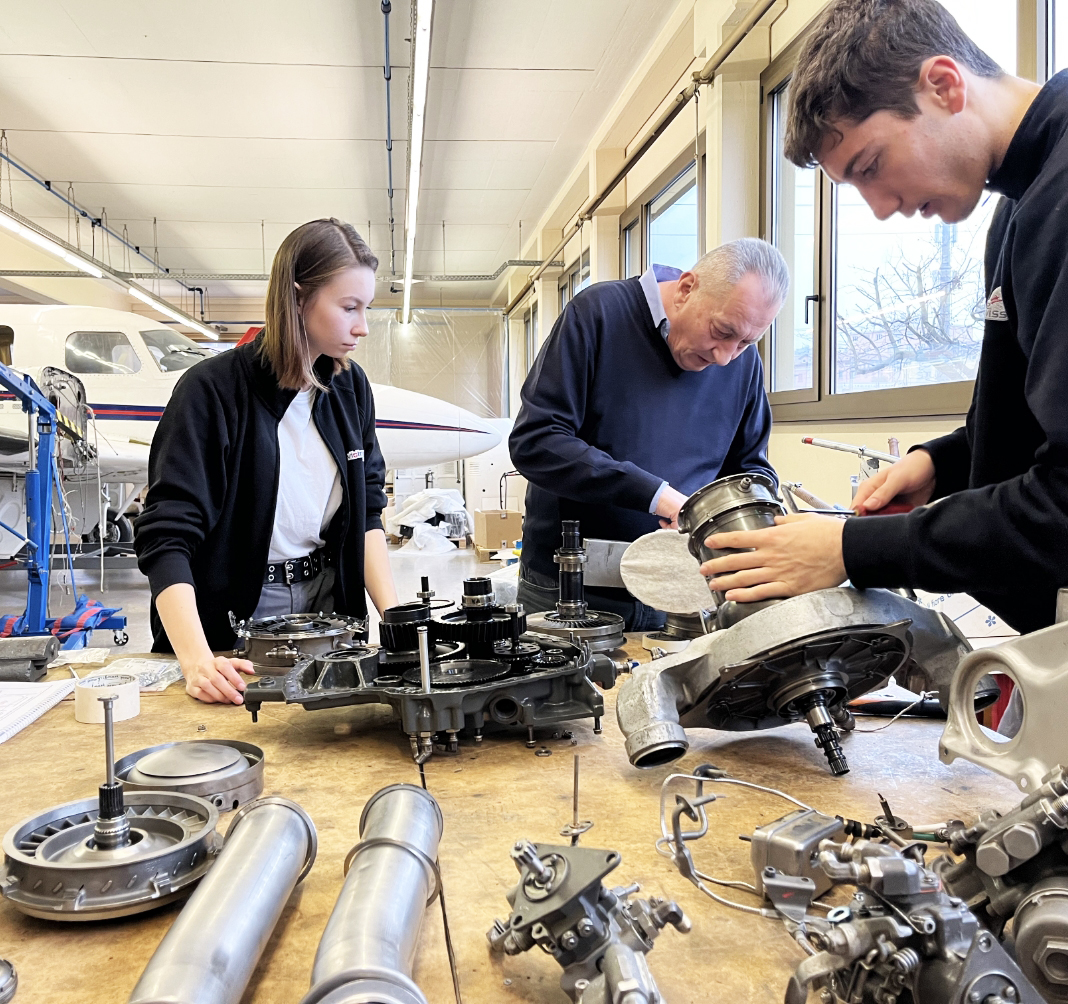
Introduction to the course for
Aeronautical Maintenance Technicians
Become a Maintenance
Technicians -Aeronautical
Maintenance
The Aircraft Maintenance Technician License, (LMA or AML) represents the essential certification for technical personnel specialized in aircraft maintenance in civil and general aviation.
The achievement of this license, obtained at the end of the training course, is recognized by all national aviation authorities that are members of EASA - European Aviation Safety Agency.
CONTATTACI →DURATION
OF COURSE
2.400 hours
1.200 hours of theory
1.200 hours of practicals in hanger
MINIMUM
REQUIREMENTS
basic knowledge of
english language.
HEADQUARTERS
HANGAR
Mendrisio
via Rime 1
Switzerland
Why choose Aviotrace Swiss?
Aviotrace Swiss allows you to complete
your course of study without the need to lean onto
other companies.
HANGAR
OWNED BY THE
SCHOOL
VIRTUAL
REALITY
CURRICULAR
INTERNSHIP
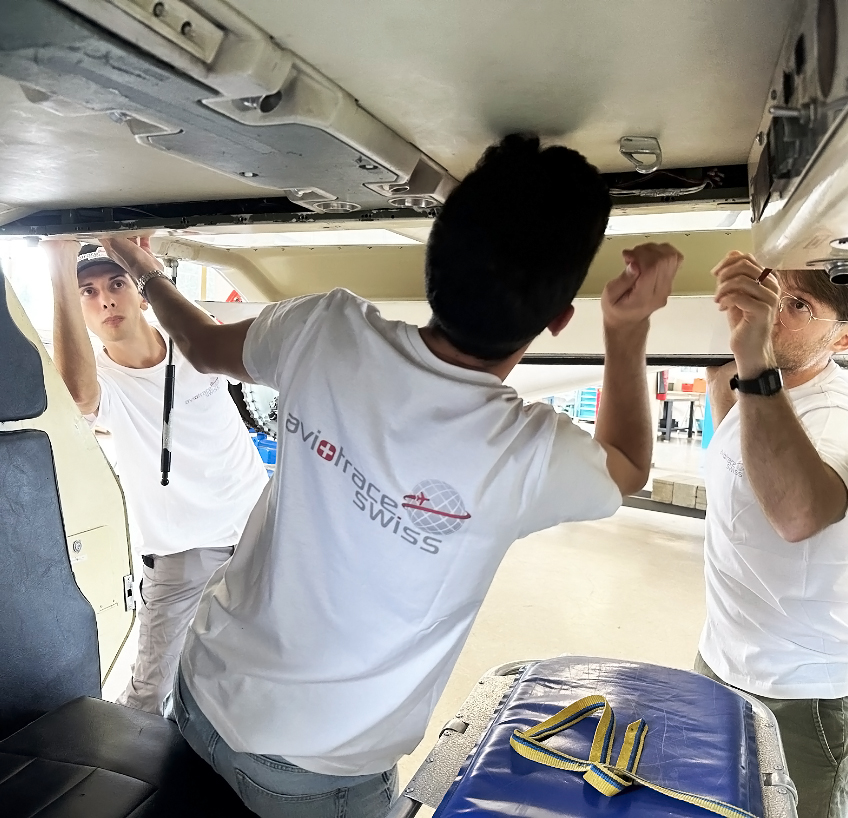
Hangar inside the school
Immersed in an real world
of maintenance environment.
Although our location is not within an airport, we boast a complete hangar, equipped with airplane, helicopter, and all the necessary equipment for a hands-on experience, structured as a real maintenance hangar.
First-class infrastructure: at Aviotrace Swiss, we continually invest in infrastructure, ensuring regular upgrades and replacement of obsolete equipment. Our hangar is designed to faithfully replicate an aircraft maintenance environment, providing students with an opportunity to gain practical skills in a realistic framework.
Virtual Reality
Interacting with aircraft
from the beginning.
A distinctive element of our course is the integration of Virtual Reality. Unlike other schools where the first year is often dedicated mainly to theoretical aspects, at our institution our students have the opportunity to immerse themselves in hands-on experiences through VR. This advanced technology allows them to explore the interior and exterior of an aircraft, deal with simulated maintenance situations, and acquire crucial skills early in the course.
Interactive Learning: VR offers immersive and interactive learning, allowing students to apply theoretical knowledge in realistic simulated environments.
Advanced preparation: Early interaction with VR prepares students to enter the industry with a practical and in-depth understanding of maintenance procedures, giving them a competitive edge.
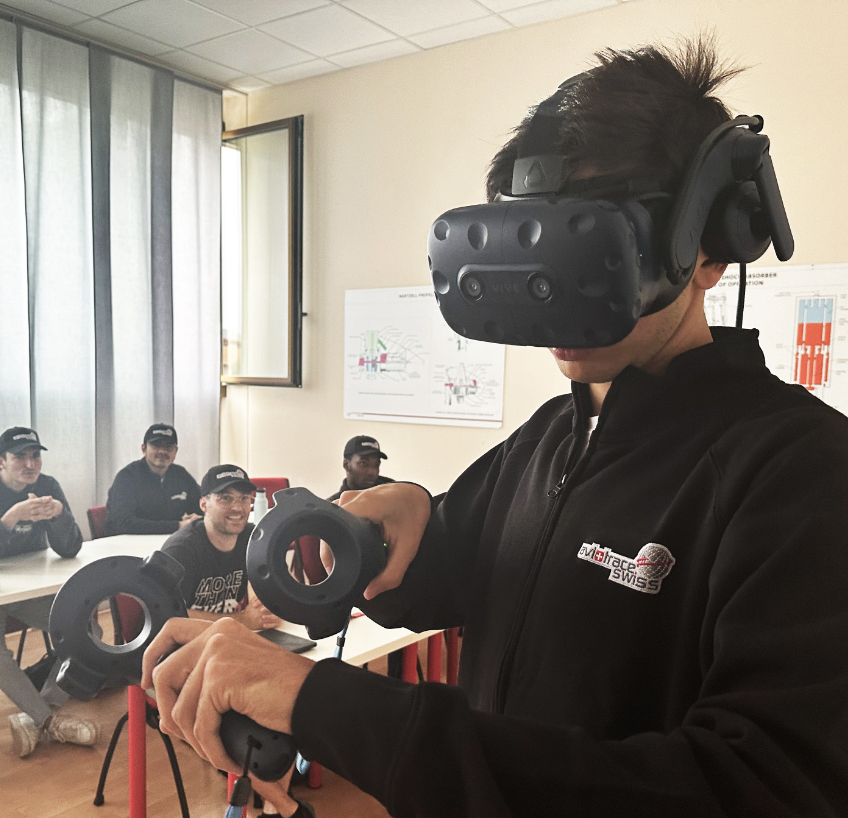
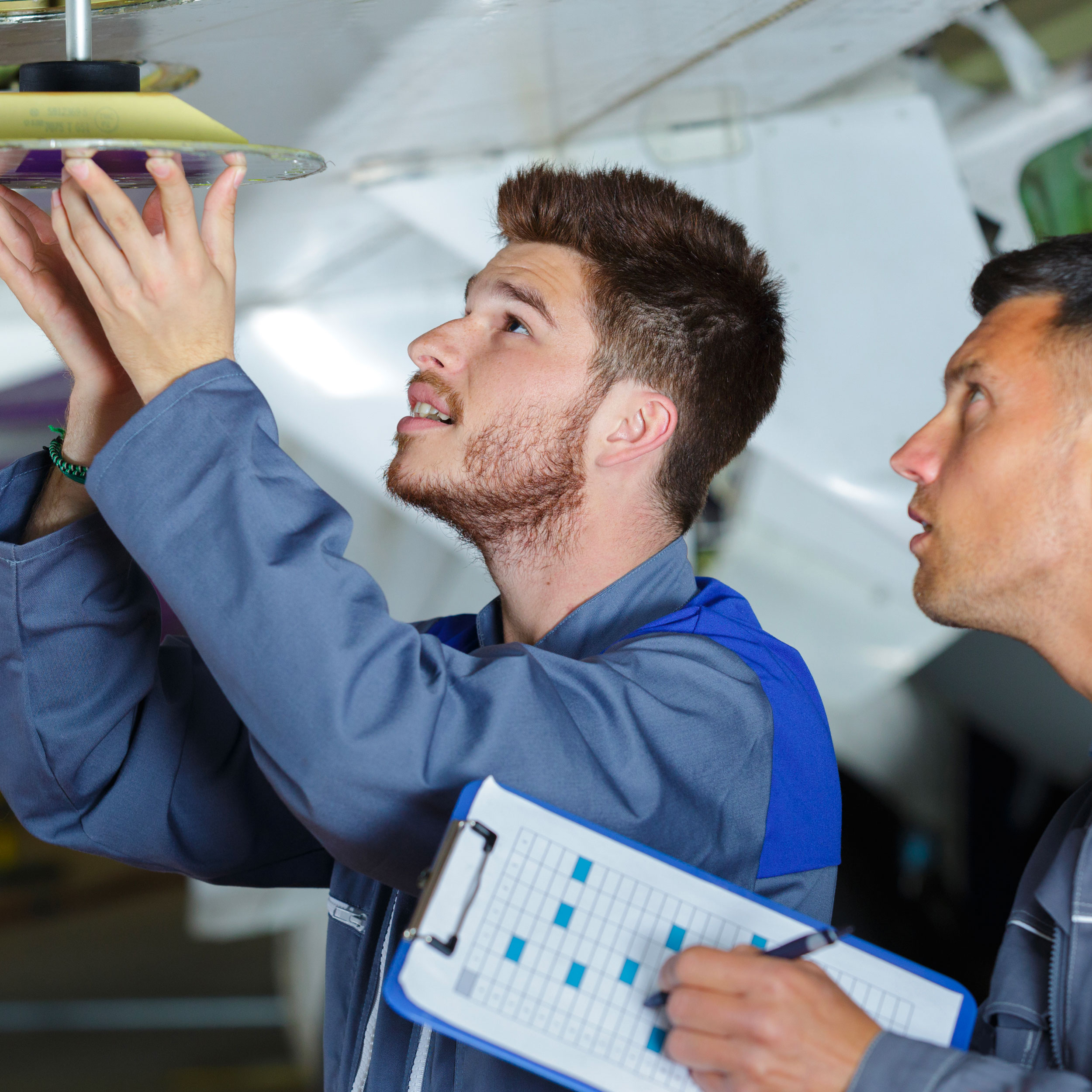
Curricular Internship
Concrete experiences for your
your success
Aviotrace Swiss offers students a unique opportunity through its Curricular Internships by guaranteeing access to the first interview directly with the host company. This crucial step in the selection process is a valuable opportunity for students to showcase their skills and personality. In collaboration with leading companies in the aviation industry, we provide the opportunity to undertake high-level practical experience that not only enriches the education but also gives the chance to open the door to a future career in aviation maintenance.
Strategic partnerships with prestigious companies:
Our established partnerships with leading companies in the industry ensure that students gain an in-depth overview of business dynamics and aviation maintenance practices in real contexts.
Aviotrace Swiss
offers you convenient
methods of payment.
We have collaborated with Intesa Sanpaolo bank
to present students with a credit card payment
solution, which facilitates the
course of study

We are committed every day to make our contribution to create opportunities for students to pursue their own path of study, growth and autonomy.
With this in mind, we have entered into an agreement with Intesa Sanpaolo to make all students aware of the credit solution designed by the bank, which allows you to expand your skills and accompanies you to face your study path with confidence.
Students can get more information by contacting Intesa Sanpaolo directly.
Our partnerships
Over the years, Aviotrace Swiss has offered
Students the opportunity to pursue curricular
internships at major maintenance companies.
AIROPLANES
Nayak | Lufthansa | Albatechnics | Turin Flying Institute | Avincis | Textron | Urbe Aero | Aliserio | Aero Locarno |
HELICOPTERS
Karen | Airgreen | Avincis | Swiss Helicopter | Euroavia | Eurotech | SAM Helicopters | Mecaer Aviation Group
Job opportunities
The aviation industry, with a focus on the maintenance field, offers solid and steadily growing job opportunities. The growing demand for air travel has led to an increase in the production and use of aircraft, making the presence of qualified maintenance and repair professionals crucial.
Aviation maintenance technicians play a key role in ensuring the safety and reliability of air fleets. Their specialized skills are in demand by airlines, maintenance shops, and aerospace companies. Technical training in this field provides a solid foundation for tackling complex challenges and advanced technology
96%
OF OUR STUDENTS
FIND JOBS WITHIN THE FIRST YEAR
AFTER THE COURSE COMPLETION
Our instructors
At Over the years, Aviotrace Swiss
has offered students jobs in
major maintenance companies.
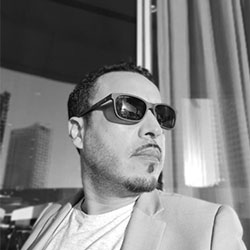
Ouadie Mitaki
Basic and Type instructor & Examiner
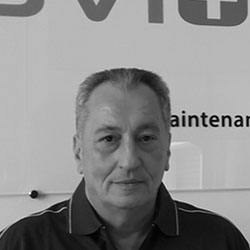
Piero Visone
Practical instructor

Piermatteo Cicolini
Theroetical instructor & Examiner

Gianmaria Di Stefano
Theroetical instructor & Examiner

Mohamed Allam
Theoretical and Practical instructor & Examiner
Our Headquarters
SWITZERLAND
Via Rime 1 - Mendrisio (CH)
Our headquarters, where many generations of Aircraft Maintenance Technicians have grown up, always appreciated in the environments where they have worked.
ADDRESS
Via Rime 1, 6850, Mendrisio (Switzerland)
PHONE
+41 912 243 766
training@aviotraceswiss.com
